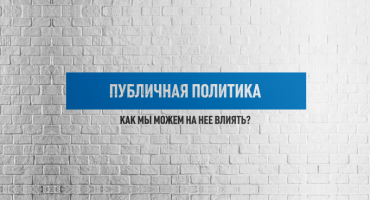At first glance, it seems that interviewing is a simple task. However, if you want to receive valuable information from the person you are talking to, you will have to make efforts to extract it. Especially if your interviewee is not interested in answering your questions.
In the beginning, we define that by “interview” we mean two concepts: when you need a comment for your journalistic material, and when you need to prepare a full-fledged interview with one person.
The work on the interview consists of three stages: the first is the preparation for the conversation, the second is the recording of the interview and the last is the finalization of the material for publication. Each of these three components has its own important aspects.
It is necessary to take an interview when questions have accumulated in society on a significant problem and it is necessary to find a competent person who can provide comprehensive answers. Sometimes it happens that questions accumulate for a particular person who is interesting to your audience – often they are politicians, officials, public figures.
Stage # 1. Training
You need to start preparing by studying the topic of the upcoming conversation – what is published about this on the Internet, what users write on forums and social networks. Such a mini-study will help you understand what aspects of this topic have not yet been touched, what new things can you bring by your interview.
You should be aware of the topic of the interview no worse than your interlocutor, so that you cannot be misled.
At this stage, you should already have sketched out the questions that are recorded in the Word document along with background information and links to publications.
It will not be superfluous to find out what questions your colleagues and relatives would like to ask. Sometimes they throw up original and interesting ideas.
The list of questions should be logical and interlinked. It needs to be shown to the editor so that he can improve and articulate certain points. But the main thing is that this list of questions is in your head, i.e. you yourself understood what you are going to ask.
It is necessary to study the psych type of the interlocutor. Talkative or laconic, impulsive or cold, what are his political and life views, what kind of media he prefers to give an interview, and for whom he has a taboo – all these details will help you build a plan for a successful interview. You can learn more about the interlocutor from publications on the Internet, video recordings and from other journalists.
Technically, everything should be checked: working equipment, full batteries, empty flash drives. In case the equipment let you down what happens from time to time, a mobile phone should be ready for insurance.
Stage # 2. Conducting an interview
Everything may not go according to plan. For example, instead of the agreed one hour, 10 minutes will be allocated for the interview. In this case, the most important questions must be asked without “warming up”.
If there is no other way to interview, you need to start asking questions right on the spot. It may not be possible to record a detailed interview, but it will be possible to make interesting material based on the answers of the interlocutor.
If there is enough time, you need to carefully listen to his answers. Additional questions must necessarily arise from his answers, and they must certainly be asked until you get an exhaustive answer.
In Central Asian countries, the content of the interview is often the responsibility of journalists. And even if it was live, where you cannot predict the interlocutor’s speech, when voicing illegal calls, insulting ethnic and religious groups, and unproven accusation of a person, you should remind your interlocutor of his violation of the law through your remarks and questions. The journalist’s tacit behaviour can be interpreted by the audience and the court as supporting the illegal actions of your interviewee.
It is very important to be concentrated so as not to miss important points and details. Sometimes a small detail voiced can change the whole course of a conversation.
If the interlocutors say something – you need to demand facts; blaming someone – demand arguments; voicing illegal calls – remind about the legislation.
As you got the right answer, you need to correctly interrupt his speech and move on to the next question.
In the “interview” genre, the task of the journalist is to politely but persistently seek clear answers to the questions posed, and not to silently assent. If the interlocutor leaves the answer, the question needs to be rephrased and asked again. If he continues to evade, you need to ask directly: “why don’t you want to answer this question”?
But at the same time, the journalist must behave correctly: the tone is neutral – not prosecutorial, not oppositional, but also not ingratiating. It is important to maintain a psychological distance and not to go personal. If you cross this line, the interlocutor may be outraged by your behavior or switch to familiarity – both of these will not help you for a productive conversation.
Pay attention to the nature of the questions of the two journalists and how they hold during an interview with Vladimir Putin
In addition to the conversation itself, it is also important to observe the behaviour, body movements of your interlocutor, and consider the situation in his office or home. Interesting observations can enrich your material.
From time to time, you need to monitor the recording device – while you pry out important answers from the interlocutor, the battery charge from the recorder or camcorder may end, the equipment may stop or break spontaneously.
But even if the recording is working properly, you cannot rely only on the recording. Answers must be recorded in a notebook, especially numbers, terms and key points. If you don’t understand something, do not hesitate to interrupt and clarify, say that you do not understand. You do not have to understand everything, so you record an interview.
If after stopping the audio or video recording the interlocutor said something important, you need to ask him to repeat it under the recording.
Name and position must be recorded accurately. If in doubt, it is better to let him write with his own hand. Be sure to write down his cell phone, email address and ask which messengers he is checking quickly. Later you may have additional questions and it is important that you have the opportunity to contact quickly.
Before saying goodbye, thank your interlocutor for his time and conversation. Politeness and good manners are the hallmarks of a professional journalist.
Stage # 3. Preparing to publish or broadcast an interview
It is necessary to copy the full recording of the interview into a separate folder along with questions and reference materials. If you are working with sound or video, you need to create a copy and edit it, not the original. This folder should be kept forever, so that when disputes arise, you can rely on your archive.
Not everything the interviewee said may be interesting to your audience. Therefore, at the stage of decoding and editing the material, you need to leave only the most valuable and interesting parts of the interview. However, remember that contraction should not distort the interlocutor’s thought. In the dilemma between the reduction of the text and the preservation of the meaning of what has been said, you need to choose the second.
The fact that you were given an interview indicates that the interlocutor trusted through your media to clarify the audience on any important issue. The task of a journalist is to convey this information to his readers, listeners or viewers without distortion.
While working on the text, the journalist has additional questions and clarifications. This is normal practice. You need to call, write and ask.
Often before the publication and broadcast of the conversation, the interviewees ask to send them the material for approval. You are not obliged to do this – the interlocutor knew that he was giving an interview on record and that what he said would be published, so there was no need for prior approval. It is permissible for familiarization to send certain parts of his speech so that he can make clarifications or additions, but this does not give him the right to change the meaning of what has already said.
If the interlocutor voices controversial statements or incorrect information in the material, you must provide reliable data or an alternative point of view using the author’s note. The “Interview” format does not give the right to the interlocutor to mislead your audience.
If the interview is not broadcast live, the journalist and the editorial team are primarily responsible for the content of the material. These are the laws and jurisprudence of the countries of Central Asia.
Therefore, the interview should not be accompanied by unsubstantiated allegations against a specific person or institution. Also, during the interview, insulting, derogatory remarks against ethnic, religious and other groups in your country are unacceptable. You should not be the conductor of baseless accusations, abusive statements and illegal appeals.
After the publication of the final version of the interview, the material needs to be posted on social networks and sent by e-mail to interested groups of people. If your readers or viewers have questions, as an author, do not forget to give them answers.
Additional literature:
Reporting for Change: An IWPR Guide for Local Journalists in Crisis Regions (in Russian).
If you have found a spelling error, please, notify us by selecting that text and pressing Ctrl+Enter.






